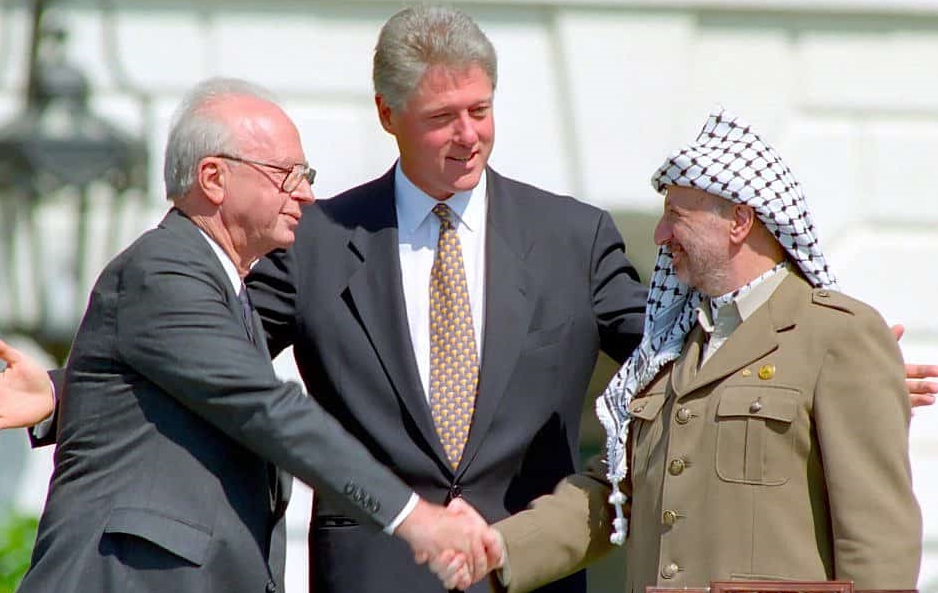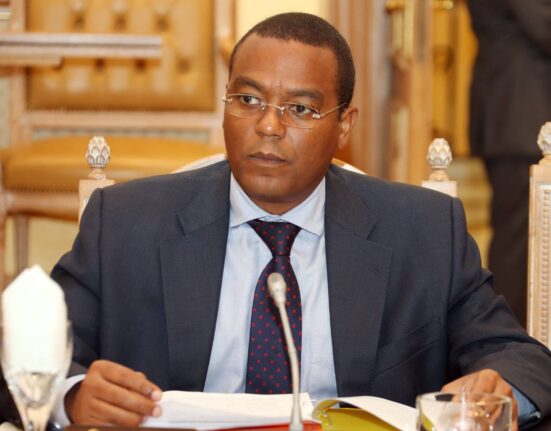Thirty years later, Rabin’s legacy collides with a Middle East transformed by extremism, war and political polarization.
Thirty years after Israeli Prime Minister Yitzhak Rabin was assassinated by a Jewish extremist for pursuing peace with the Palestinians, his vision of a two-state solution has not only faded, it has been eclipsed by a new era of militarized politics, uncompromising nationalism and a region reshaped by war.

AfricaHeadline Reports Team
editorial@africaheadline.com
The 1993 Oslo Accords, which Rabin signed with PLO Chairman Yasser Arafat on the White House lawn with President Bill Clinton looking on, were once heralded as the most promising blueprint for Israeli-Palestinian coexistence. But in 2025, after successive wars between Israel and Hamas, expanding settlement blocs, deepening mistrust and the rise of far-right parties in Israel’s ruling coalition, the two-state solution appears more distant than at any point since Rabin’s murder.
Rabin’s assassination on Nov. 4, 1995, by a religious ultranationalist opposed to territorial concessions, was a seismic moment that changed Israel’s political trajectory. His death cleared the path for a shift to the right that has dominated Israeli politics for most of the past three decades.
Benjamin Netanyahu, then a vocal critic of the Oslo process, won the 1996 election after Rabin’s death and returned to power multiple times, steering Israel toward a security-first doctrine and away from territorial compromise. Under his leadership, settlement expansion accelerated, the Palestinian Authority weakened, and the political space for negotiations shrank dramatically.
Rabin believed that empowering a Palestinian leadership capable of enforcing security and governance would gradually defuse the conflict. But the Second Intifada (2000–2005), Hamas’s takeover of Gaza in 2007 and repeated Israel-Hamas wars shattered that premise.
The October 7, 2023 Hamas attack on southern Israel, and the devastating Gaza war that followed, accelerated the collapse of Oslo’s core assumptions: land-for-peace, mutual recognition, and gradual sovereignty. In Israel, any remaining political appetite for concessions toward a Palestinian state has eroded, replaced by calls for “security control from the river to the sea.” Among Palestinians, faith in diplomacy has plummeted as occupation deepens and living conditions deteriorate.
As one Israeli analyst recently put it, “Oslo did not die because it failed — it died because no one in power wanted to keep it alive.”
The Middle East of 2025 is not the landscape Rabin worked in. Arab states increasingly prioritize strategic alliances, technology, security and trade over Palestinian statehood. The Abraham Accords normalized relations between Israel and several Arab powers without delivering concessions to Palestinians, the inverse of Rabin’s diplomatic approach, which linked regional stability to solving the Palestinian question.
Efforts by the United States and Europe to revive peace talks have been episodic and largely symbolic, overshadowed by shifting global priorities and conflict fatigue. Meanwhile, extremist ideologies on both sides, Jewish ultranationalism and Islamist militancy, have gained ground, exploiting the vacuum left after Oslo unraveled.
Rabin’s legacy now serves as a reference point less for hope than for what happens when political courage collides with ideological absolutism at home. His assassination demonstrated that the most potent threat to Israeli–Palestinian peace came not only from militants firing rockets or suicide bombings, but from within the societies meant to embrace coexistence.
As Israel debates post-war scenarios for Gaza, from indefinite military control to internationally supervised governance, Rabin’s insistence that sustainable security requires Palestinian political dignity has resurfaced in diplomatic circles. Yet it remains far from mainstream Israeli politics.
Among both Israelis and Palestinians born after Oslo, many view the two-state solution as an obsolete slogan. Younger generations have grown up with walls, checkpoints, rockets and recurring war, not handshakes on the White House lawn.
In 1995, Rabin warned in his final speech:
“Violence will destroy us from within.”
Thirty years later, the region is living the consequences, and the peace Rabin envisioned feels like a distant memory rather than an unfinished project.








